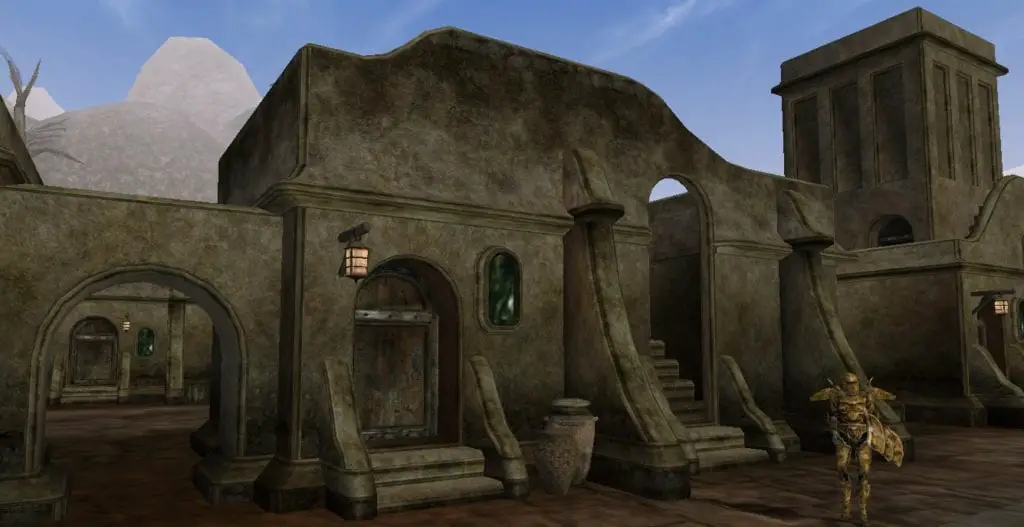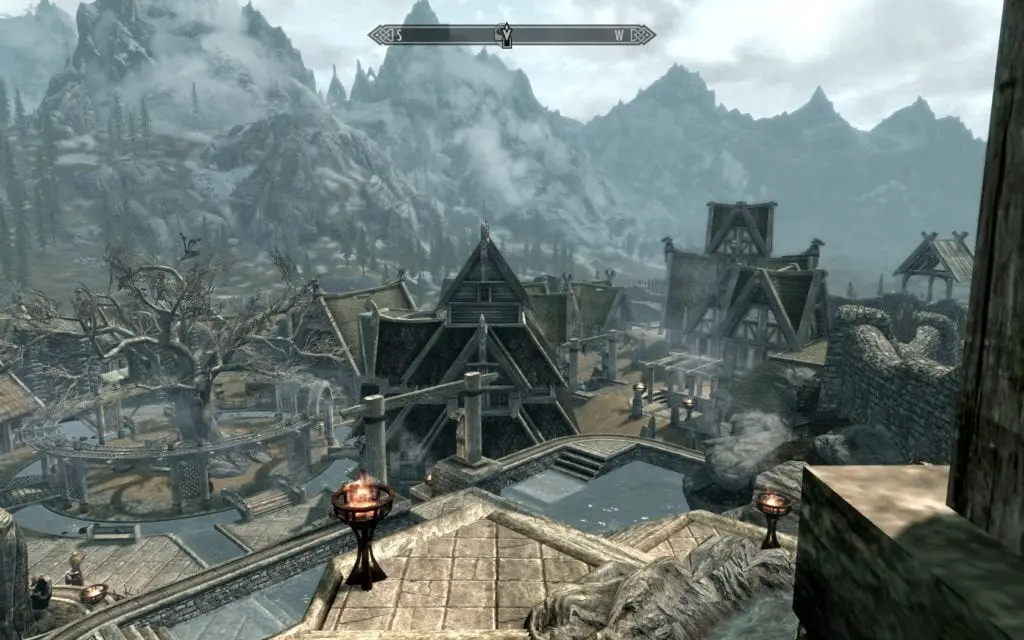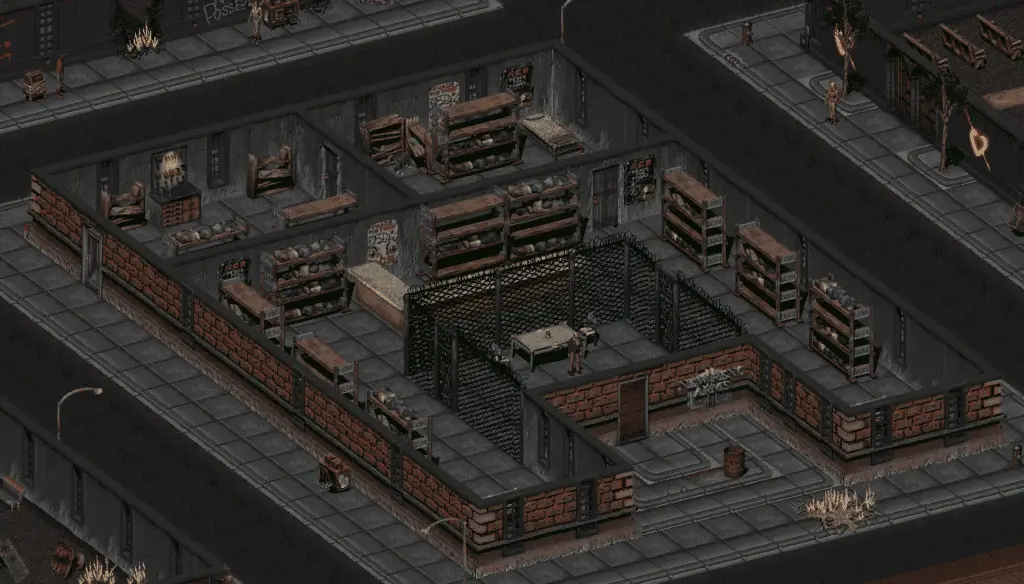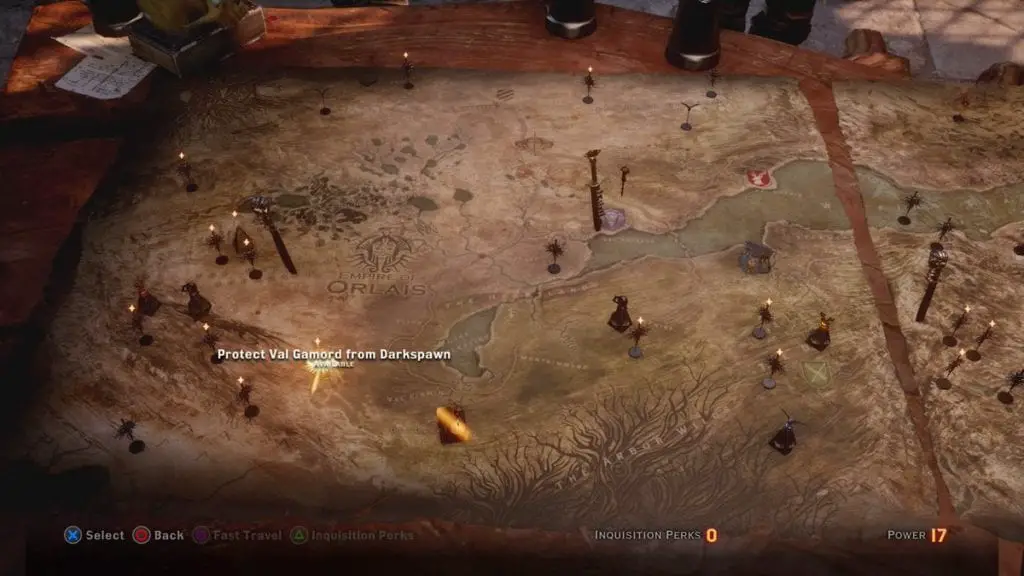Some time ago, you may have read my first impressions about Pillars of Eternity 2: Deadfire. I’m almost to the end of it, now, and it might or might not result in a full-size review, but not today. What I’m going to talk about now is games with an open world and how it affects their plot.
Deadfire has a far more open world than the first game. Such game worlds have been popular these past few years, after all—to the satisfaction of some and tooth-gnashing of others. But there’s one common theme that I realized runs through all of them. Namely, does it ever feel like we’re justified in exploring this world? Or do we have to actively ignore whatever goal our characters have as we wander and do as we feel like?
In Deadfire, I really don’t feel that we do. We’re chasing down a god in a mission that has ramifications both for our character personally and the world at large, but we still have him wait around while we explore, do odd jobs for people, and get involved with local politics. It’s really difficult to reconcile the urgency of our hunt for Eothas and… everything else.
Of course, the original game had this problem too, even though it wasn’t an open world. Until a certain point, the main quest wasn’t so urgent as to break immersion when we strayed from it. But past that, we’re told that we have to make haste and chase the villain, but not before finishing all the quest in an all-new location and wandering off to the White March if we bought that DLC.
So now let us move back a bit and examine other open world games, and some that aren’t, with regards to how their lack of boundaries interacts with their main stories. The common complaint is one we all know: it breaks immersion to go out and explore while world is at stake, our soul is, or some such.
The Elder Scrolls
The Elder Scrolls games have a long tradition of being open world. In fact, you could say they were open worlds long before it became as popular as it is now. Arena and Daggerfall dwarfed what we can see now. Of course, they were also full of copy-paste, randomly-generated content, but that’s an aside.
I won’t talk about Arena, since I haven’t played it. But I have played Daggerfall, insofar as one can play it, rather than wrestle it into submission to win some progress. It solves the issue of exploration versus the main plot by not having the latter actually start until a month has passed in the game. So we basically have a full month to just do whatever. Which mostly means trying to figure out the UI and not die. It’s a very 90s game, what can I say.
Enter Morrowind. It narrowed our area down to one island but filled it with unique content. Still, we could go wherever we wanted on Vvanderfell. And yet, Morrowind still has something many later games miss: a justification for us to do so.
When the main story starts, we go talk to Caius Cosades, an agent of the Blades. He receives our letter, introduces us to the organization, and tells us to go get a job. Before he sends us on our first mission, he wants us to get settled in Morrowind, earn money, train and make contacts. The other Blades tell us much the same. At later points of the main plot, Caius will also tell us to go do our own thing and report back to him later for the next assignment.

It feels really simple, but how many other games just outright tell us to go and do our own thing? Compare this to Skyrim, where we start out with Alduin attacking Helgen and saving the one person capable of defeating him. Since otherwise the miscarriage of justice would have finished and we’d have been executed for being near Ulfric.
Anyway, then we have to warn the nearby Jarl about a dragon attack. But is there anyone who actually went ahead and did that immediately? We get a side-quest right after entering the local shop. So it’s basically a situation where a dragon appeared and torched a town, but we’re going to help this cranky storekeeper get his fancy paperweight back.
Once we go get to Whiterun, the Jarl sends us to his court wizard, who has us retrieve an ancient tablet. Which we likely already have at that point, since it’s in the very same tomb we retrieved the aforementioned fancy paperweight (actually a key).
That’s one of the least urgent moments for a while, really. It feels natural that we’d stop and do something else on our way to get the tablet. Because after we get it, we get word of another dragon attack. So we go and kill the dragon, eat its soul, and as we return, the Greybeards yell at us from across the province.
At no point does it make a lot of sense, from an in-character perspective, to just go join a guild, explore some wilderness, and loot some dungeons and the like. But isn’t that what we play an Elder Scrolls game for? It’s not a linear action-adventure where we just follow the plot. It’s a game with an open world and many different possibilities. But to actually take advantage of it breaks immersion, which, admittedly, is something people look for in such a game.

You could argue that you can do all this after the main plot, but at that point, we’ll be powerful and have all kinds of special gear, rendering many low-level challenges obsolete. So if we want to participate in Skyrim’s main plot while also enjoying its supposed appeal, we need to suspend our disbelief far more than in Morrowind.
A more recent open world that doesn’t handle it in a particularly stellar fashion is Witcher 3. It has a lot of ground to cover, quests to do and monsters to slay… while also desperately chasing Geralt’s daughter who is in a lot of danger. But we can’t focus on the main plot even if we wanted to, because we wouldn’t keep up with the suggested levels. So Geralt has to find Ciri, but you bet he’ll take his time to do that.
Enough of my griping, though. Let’s talk about more complex examples, and games that, like Morrowind, incorporated their open worlds into their plots.
Fallout
The old Fallout games… are they open world? That depends on how we define it. There’s certainly little that stops us from going wherever we want. Little, that is, except the timer that ticks down and will result in failure if we take too long to find the water chip or G.E.C.K.
On the one hand, a time limit makes sense. On the other… well, I can’t say I’ve ever actually run afoul of the time limit. It’s only really going to come up if you deliberately decide to run out the clock. On the other hand, our tasks in both games are so vague that some wandering is perfectly understandable.

It’s been a while since I played Fallout 3, but I remember it as a far more typical example of what I’m talking about here. Your dad’s in danger, but there’s also a lot of wasteland to cover, trees to find, books on survival to write. We’re busy people, okay? Our dad’s going to be fine. Wherever he is.
The plot of Fallout: New Vegas is, I think, a bit more personal, so there’s less urgency to it. We don’t have anyone to rescue or a world to save so we get to do things at our own pace. I never finished it, due to bugs, but I didn’t feel the same incongruity Fallout 3 had. A useful mental exercise here, I think, is to try and narrate it from our characters’ point of view. Imagine that we’re composing a first-person narrative Let’s Play. Do we have to go through logical contortions to justify doing side quests?
Dragon Age and Mass Effect
Dragon Age: Inquisition and Mass Effect: Andromeda both have open worlds, and their execution thereof is questionable and controversial. But I won’t go there today. Instead, I’d like to point out that whether we like them or not, those open worlds make a lot more sense than in other examples.
Let’s take Inquisition first. Its open world is still split into maps, unlike Elder Scrolls’ open map with smaller instances. But nonetheless, we can wander them freely and come back as much as we want. And while we do have a goal ahead of us, the game makes it clear that the Inquisition has to gather influence and power before fulfilling it. Not to mention that closing rifts and cleaning up the mess Anders thought it would be a good idea to start is part of said goal.
So it’s entirely natural that before recruiting the mages or Templars, closing the Breach and similar, the Inquisitor would first go and establish order, gather influence, recruit people… which can involve killing a lot of rams to take their pelts. Yeah, I never said that the open world was all that good. But insofar as the principle we’re discussing here, it does do a better job than other games.

One could argue that the relative lack of pressure is part of what makes Corypheus a weak villain. After all, if we can just take our time to confront him once he reveals himself, the tension is gone. I’m not sure if that’s true. Corypheus does have a problem with being rather toothless after his big entrance at Haven, but I feel like it’s mostly due to how we have him on the run the entire time. If we didn’t dismantle his plans so thoroughly at every turn, I’d say the somewhat more sedate pace could have worked.
Another, even more controversial, open world BioWare has created is Mass Effect: Andromeda. Once again, I’d rather not get into whether or not it’s a good game. Its open world, however, does boil down to just making numbers go up a lot. Nonetheless, at least this making of numbers go up has a justification. While we do have a goal, once again, we’re also expected to explore. We’re the Pathfinder, after all. It’s our job to explore all those planets.
For all their flaws, BioWare’s open worlds managed to apply a fairly important lesson of open worlds: don’t give us one and then rush us into a fast-paced, one-direction plot. Let us actually enjoy all this. Even if it does involve fetch quests and killing animals for pelts.
Final word
There’s always going to be a degree of “metagaming” when we run around and solve everyone’s problems instead of attending to ours. To say nothing of all the looting and tomb-robbing we’re going to inevitably get up to. These are games, after all, not reality. But our suspension of disbelief only goes so far, particularly in the case of games where we can roam and explore a big, open world. And as we can see, it is possible to make it more believable than most games would have it.

